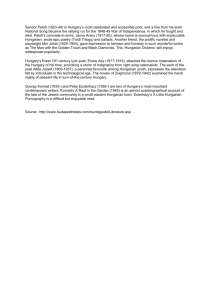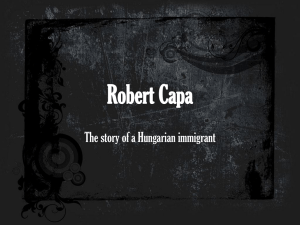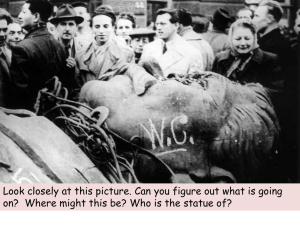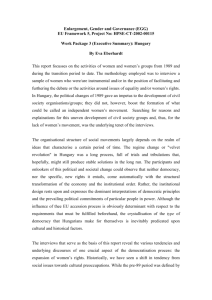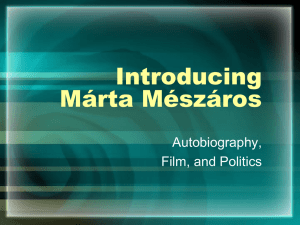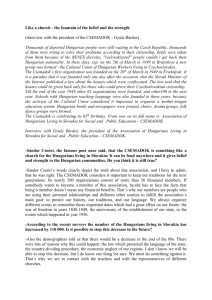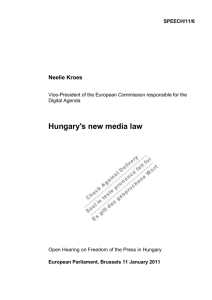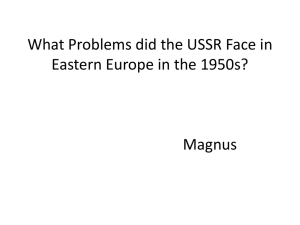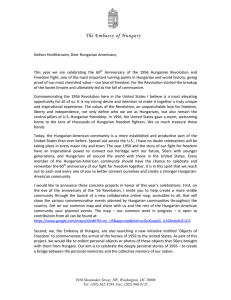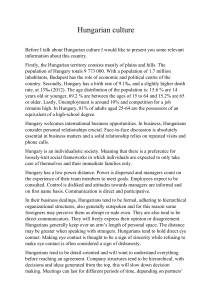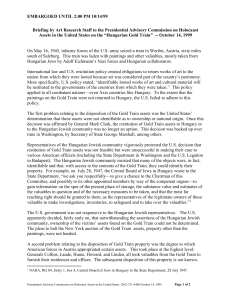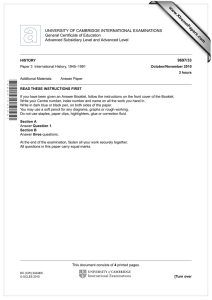Hungary & Berlin: test cases of Cold War - presentation
advertisement
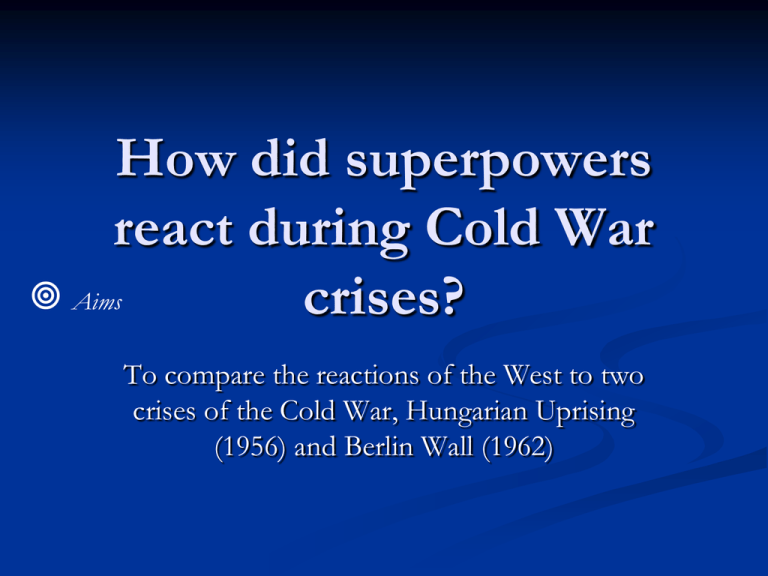
How did superpowers react during Cold War Aims crises? To compare the reactions of the West to two crises of the Cold War, Hungarian Uprising (1956) and Berlin Wall (1962) Your task Read about the events of the Hungarian Uprising (p.88) and complete the appropriate section of the table your teacher gives you. Watch the clip and note down the interpretation it provides of the Western response to the tragedy Extension task Study the text and sources from Ben Walsh’s, ‘Modern World History’, p.402-3 Using the text & Sources 8 & 10 note down reasons why Hungarians disliked Communist control How and why do sources 11 & 12 differ in their interpretation of the Uprising? Which of Hungary’s demands would be most threatening to the USSR? Why? Your task What does the Hungarian Uprising (1956) tell us about Cold War politics in the 1950s? Extension. Explain this British Cold War cartoon. Can you spot Stalin? How would Khrushchev justify his actions? Lessons from Hungary Vulnerability of Soviet sphere of influence – impact of Destalinisation on satellite states Willingness of USSR to maintain a tight grip on Eastern Bloc countries Importance of preserving Warsaw Pact – only a year old Established rules of Cold War – statements of condemnation but little military reaction starter activity Quick quiz Workers protests in which country encouraged the Hungarians to demand more freedoms? What was the name of the staunch Stalinist leader of Hungary who was forced to retire due to ‘ill health’? What was the name of the moderate Hungarian leader who was eventually executed by the Soviets? Give 4 results of the Hungarian uprisng Answers Poland, under leader Wladyslaw Gomulka Matyas Rakosi Imre Nagy Showed there were limits to independence of Eastern Bloc countries; desire of USSR to maintain tight control over ‘sphere of influence’; importance of Warsaw Pact to USSR; Western reaction established future rules of engagement, i.e. no conflict only harsh words How did superpowers react during Cold War Aims crises? To compare the reactions of the West to two crises of the Cold War, Hungarian Uprising (1956) and Berlin Wall (1962) Your task Now complete the second section of the table on the Berlin Wall (1961). Use the information in Phillips (p.90-2) and the sources to help you. Your task .Watch the film about the Wall and answer the accompanying questions with your partner. How close to WWIII do you think we got? Homework Kennedy’s speech Study the text and sources in ‘History at Source’ p.40-5 and answer questions 1-5. Extension. Read Gaddis p.114-5 and note the motives for building the Wall. Read Isaacs, p.194-203 on the attempts at crossing the Wall and Kennedy’s reaction. Plenary What evidence is there of a genuine ‘thaw’ in relations between 1953 and 1961? What caused the changes? What part did individuals play in developments in superpower relations?
